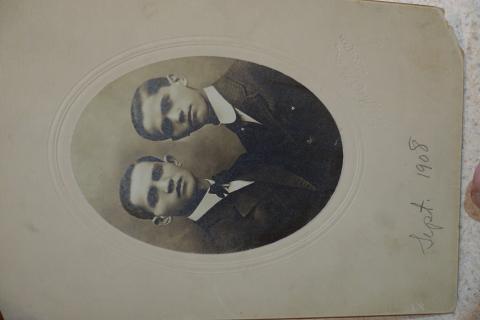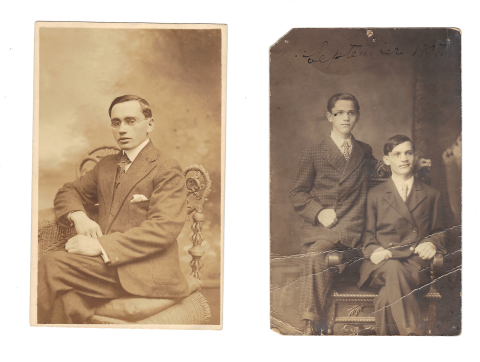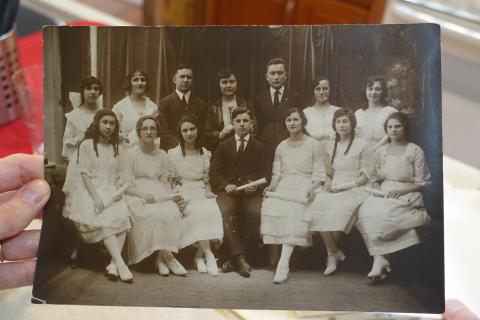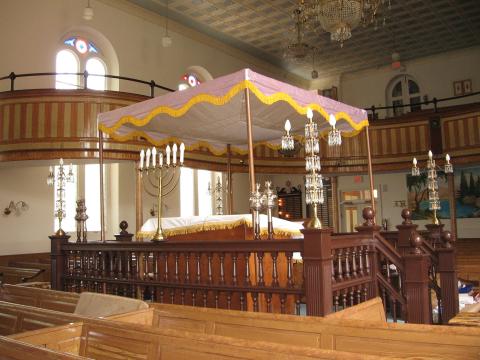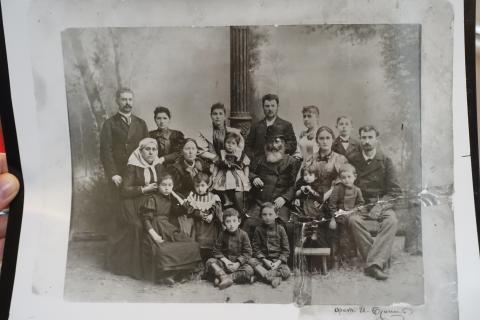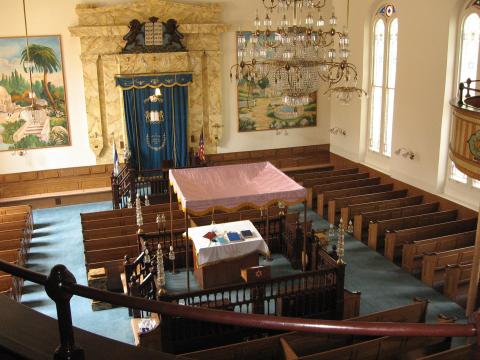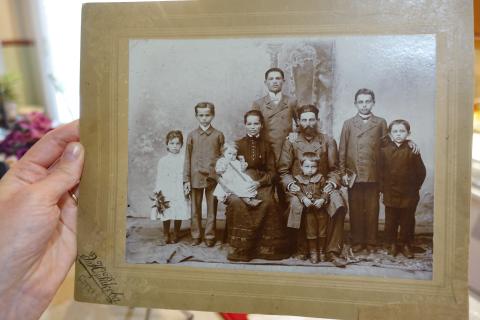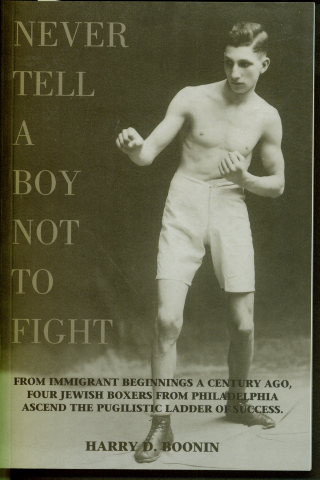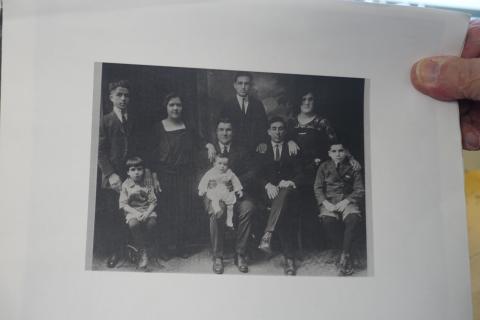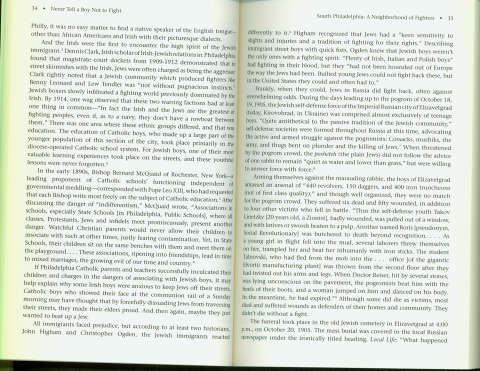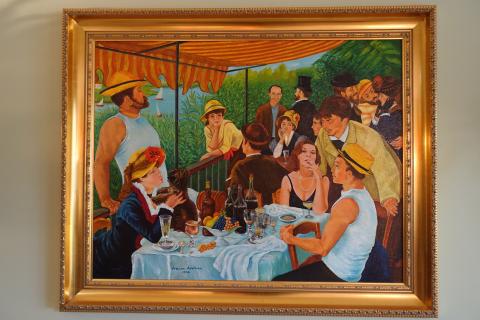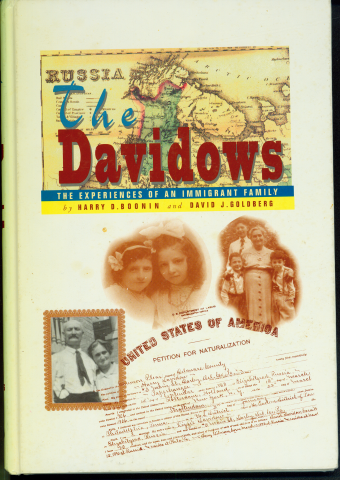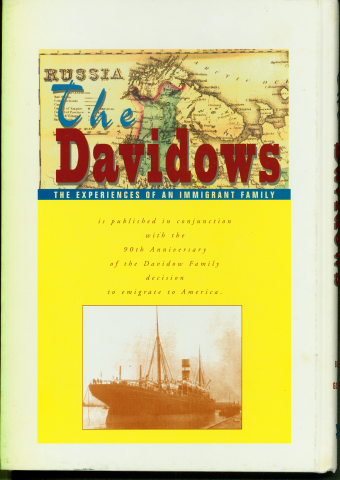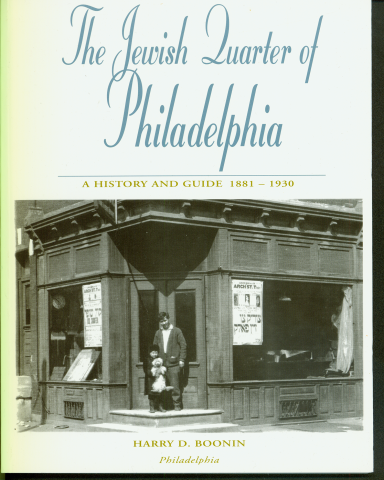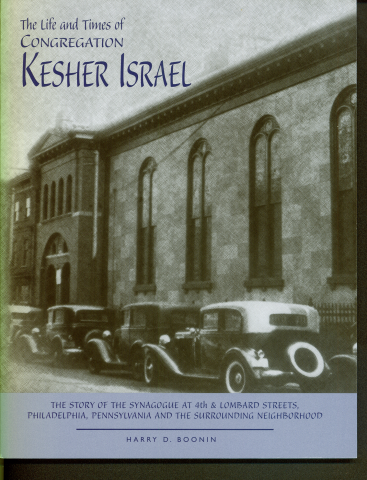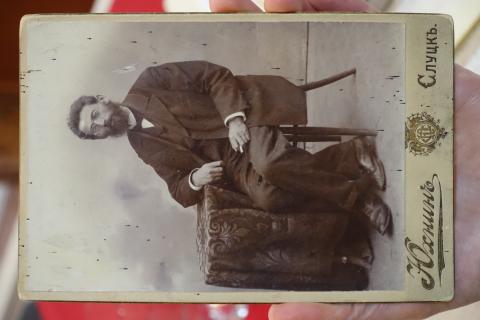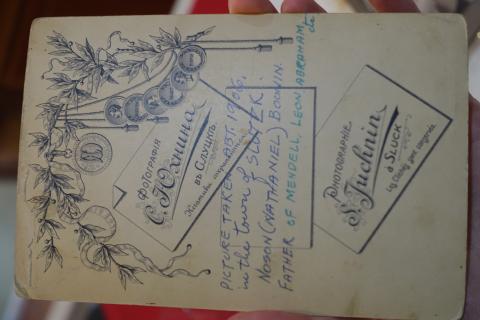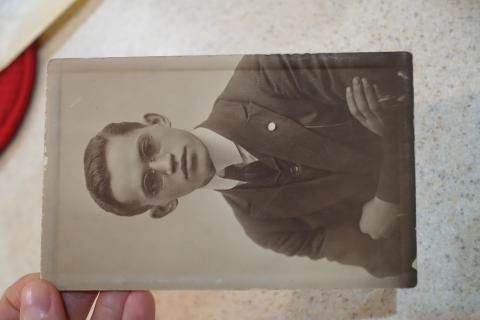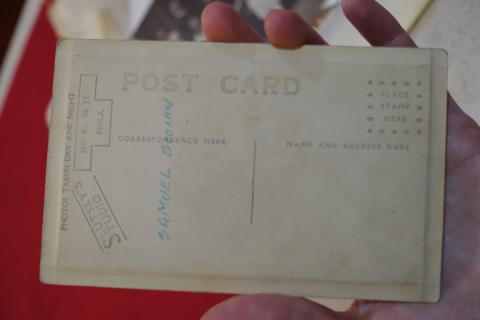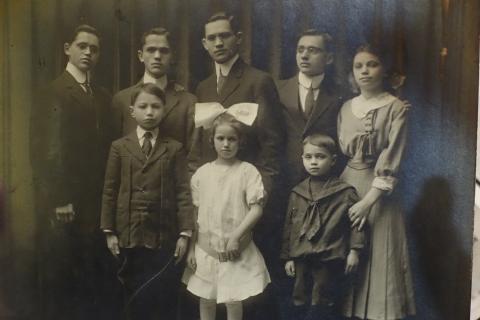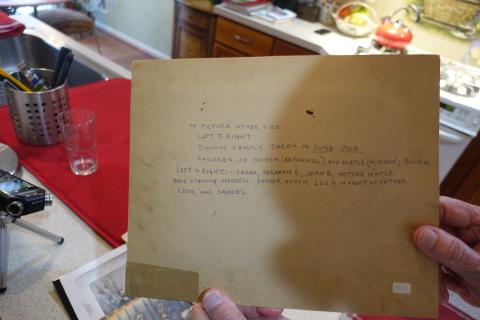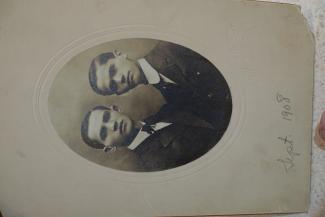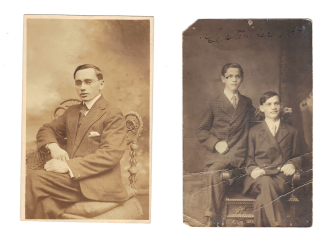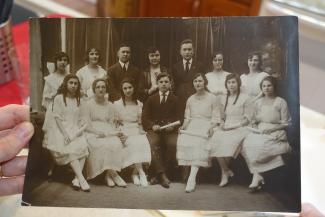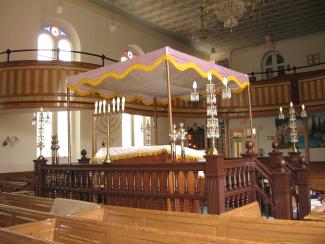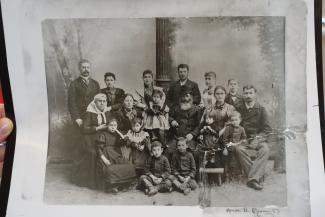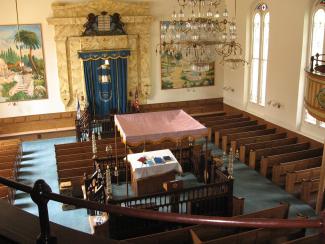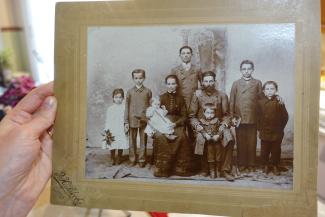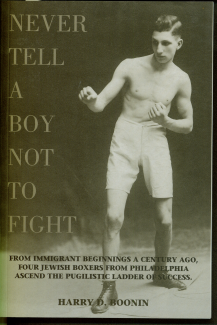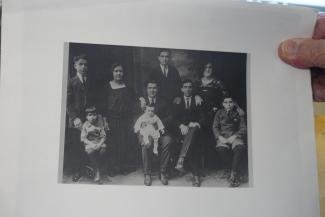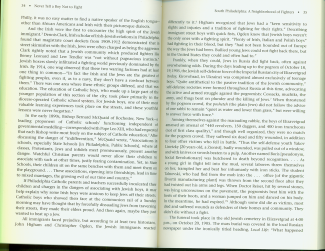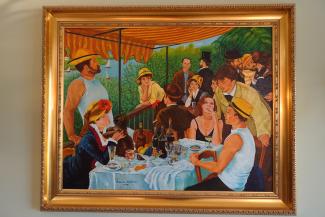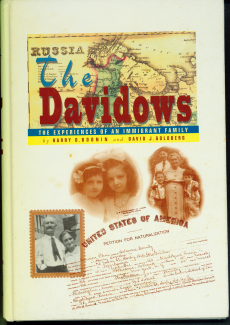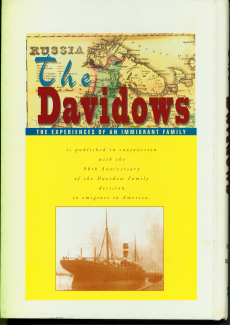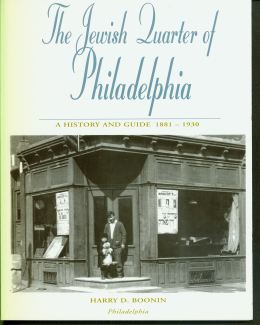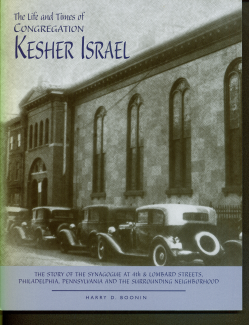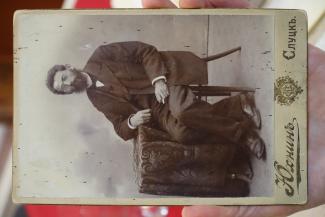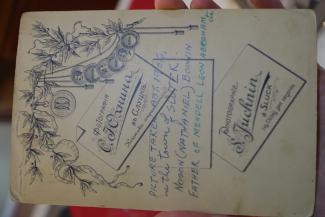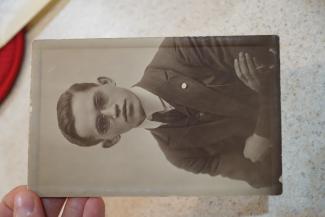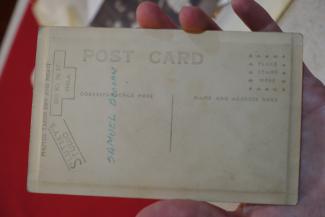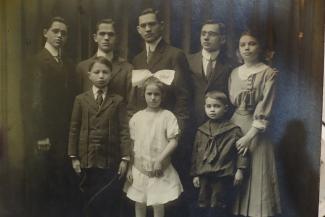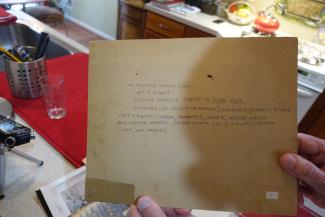The Yiddish Book Center's
Wexler Oral History Project
A growing collection of in-depth interviews with people of all ages and backgrounds, whose stories about the legacy and changing nature of Yiddish language and culture offer a rich and complex chronicle of Jewish identity.
Harry Boonin's Oral History
Harry Boonin, author and historian of South Philadelphia, was interviewed by Christa Whitney on March 28, 2018, in Warrington, Pennsylvania. His mother's family came to the United States from Russia after her brother, a member of a Jewish Defense Organization, was killed in a pogrom in 1906. In response, Harry's grandmother took seven of her 17 children and immigrated to Philadelphia. Harry's father and five siblings got out of Russia in 1911 and joined two siblings in Philadelphia. Harry has a large box of letters, mostly in Yiddish, describing their life in Russia and their difficult immigration process. Based on information in the letters, Harry describes his parents' lives in the old country and the challenges faced by Jewish farmers who could not own land. Both of Harry's parents became lawyers, and he grew up in a non-Jewish part of town. Two of his closest friends were German and one was Italian; he does not recall encountering any antisemitism. He tells about his life as a young boy during World War II with his victory garden, the radio broadcasts, and his stamp collection. He remembers getting in trouble at school during the McCarthy era when he mentioned that his parents came to the United States from Russia. After Harry got out of the Navy, he attended Penn State and eventually became a lawyer. He worked as an attorney for the United States Navy for 31 years. He describes meeting his wife, Ruth, on a blind date. She had grown up in a heavily Jewish neighborhood and peppered her sentences with Yiddish words. Henry was charmed and feels that Ruth opened a whole new world to him. In the late 1960s, Harry got involved in Jewish genealogy. In the ‘70s, he discovered the stash of family letters, written from 1908 through 1919. Eventually he had many of the letters translated into English. His interest in all things Jewish was awakened when his children were small, and he and Ruth decided to take a Yiddish class and then join a leyenkrayz (reading circle). The Yiddish came in handy when he began doing research for four books on Jewish themes. His first book was about the Jewish history of South Philadelphia, which he researched preparing to lead tours of the area. He described the sweatshops in the garment district and the Yiddish theater scene. Another book focused on a Philadelphia synagogue and a third on Jewish boxers and boxing. He remarks on how touching it was to find people such as librarians and archivists interested in helping to research the topics and contribute photographs or memories. His advice to young people, whether interested in Yiddish or music or another subject, is to learn as much as you can as early as you can.
This interview was conducted in English.

